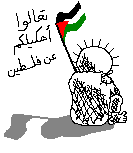Two Ways of Thinking
I have found that in my everyday interactions I tend to lump people into two broad groups; Authority Realists and Authority Pragmatists.
The Authority Realist
The Authority Realist is commited to two core beliefs at once:
1) that there is a single, stance-independent way things are, which truth mirrors’;
2) that this way things are carries authority over how we ought to think, speak and live.
It is not enough for the Authority Realist that the world emits causal pressures on her. There needs to be something additional to the world that is “the truth about the world” that legitimates her commitments, values and behaviours. It suffices for her, when pressed, to simply defer reason to this higher authority that carries its own normativity as license for her beliefs or actions. In doing so, the Authority Realist will tend to repeat phrases such as ‘facts don’t care about your feelings’ and ‘the fact of the matter is’ to invoke that order. When asked ‘what should be done?’ in a pro tanto sense, her reaction is to think about which action best mirrors or fits the nature of things. She is moved by the idea of a non-human authority, and wishes to humble herself against this authority.
The Authority Realists may appeal to a range of these authorities as essences that outrank deliberation. These commonly include: the sciences, the nation, tradition, God, authoratitive texts such as law or scripture, or everyday metaphysics coded in thought-terminating cliches like “boys will be boys”, “a real X does Y”, “nature intended”, “reason demands”. She may be fallibilist about our epistemic access but she is confident in principle that the joint-carving knowledge exists somewhere, whether attainable by future inquiry or through divine revelations or through other means or other special and chosen human beings such as scientists and prophets that serve as intermediaries or by higher beings be it aliens, the angels, the Gods and so on. And she might add to this that, once we gain access to this set of Truths, we will reach some kind of future felicity, some kind of Utopia, because after all “the truth shall set us free”, either in the form of a celestial heaven up above or a paradise on earth.
The Authority Realist believes that there is a virtue called ‘the love of Truth’ which she possesses. The pursuit of this truth is to her an end in itself and holds more weight than any normative, pragmatic or social consideration. Her favourite figures are Tolstoy’s Old Prince Nikolai Bolkonsky, George Eliot’s Mr Casaubon, Dickens’s Thomas Gradgrind and Brontë’s St. John Rivers. She tends to be attracted to necessities such as the idea of an intrinsic ‘human nature’ that is fixed and static and believes that contingencies are rare, or even that there are no genuine contingencies and that “everything happens for a reason”. When faced with a problem, she will often try to adapt it to her conception of the underlying reality rather than reshaping that conception. She likes to have solid foundations and the thought that her beliefs might be circular utterly daunts her.
When introduced to a new linguistic habit that describes a mode of being that is foreign to her, she will tend to reject it because it does not conform to Reality. To her, we are answerable to this nonhuman entity (cashed out in terms of Reality, God, How Things Are Anyway) when carving out our concepts, and not only to other present and future human beings. In this sense, she is resistant to change such as language reform. She draws inspiration from Plato and Aristotle and despises thinkers like Pyrrho.
Finally, she regards the Authority Pragmatist as being delusional and naively anthropocentric for failing to see the world as it truly is.
The Authority Pragmatist
The Pragmatist, on the other hand, is motivated by the utilitarian maxim ‘happiness to the greatest numbers’ and the christian idea that ‘love is the the only law’, and apply them both in her moral and epistemic reasoning but jettisons their metaphysical weight. She will often utter and live by mottos like ‘do whatever makes you happy’ and ‘who cares as long as X doesn’t hurt anyone?’. When asked ‘what should be done?’ her reaction is to think about which action brings about more happiness. She cares not about essences and ‘the nature of things’ and her primary consideration is social, pragmatic and normative. Despite the Authority Realists’ contempt, she prides herself in being anthropcentric in the sense that she cares not about prostrating herself against anything non-human and will view the world as irreducibly social and consisting of a continuous cycle of negotiations with her fellow human peers. The Pragmatist admits that there is an external reality that emits causal pressures which resist against her desires, but because she believes reality is inescapably mediated by our descriptions of it, she is more concerned about which descriptions lead to a happier, richer, more fulfilling life rather than about which descriptions better correspond to the external Authority. Her favourite figures are Nietzsche’s Zarathustra, Sartre’s Roquentin, Dostoevsky’s Underground Man and Karamazov, Tolstoy’s Bezukhov and Cervantes’ Don Quixote.
The Pragmatist thinks that the Authority Realists’ virtue for the love of truth is a vice that leads people to cling onto old, less pragmatic, ways of thinking that may hurt her fellow peers, and sees it as the love of chains. Her favourite credos are provocative ones such as that truth is made and not found, but when pressed she retorts ‘I merely meant that we make vocabularies and standards of warrant and that justification is social and revisable”. She draws inspiration from poets and novelists that offer her new, more imaginative perspectives that she had not previously considered. Her way of persuading others is to ask them to ‘try looking at it this way’ instead of saying ‘this way is the True and only way’. She regards the Authority Realist as being hypnotised by a platonic spell and socialised into a platonic language game, the wrong language game.
I find myself in this latter group (that i steelmanned :D).
 Home
Home About
About Entries
Entries Chat
Chat Kool Webpages
Kool Webpages Guestbook
Guestbook Kool Books
Kool Books Truth Table
Truth Table Contact
Contact













